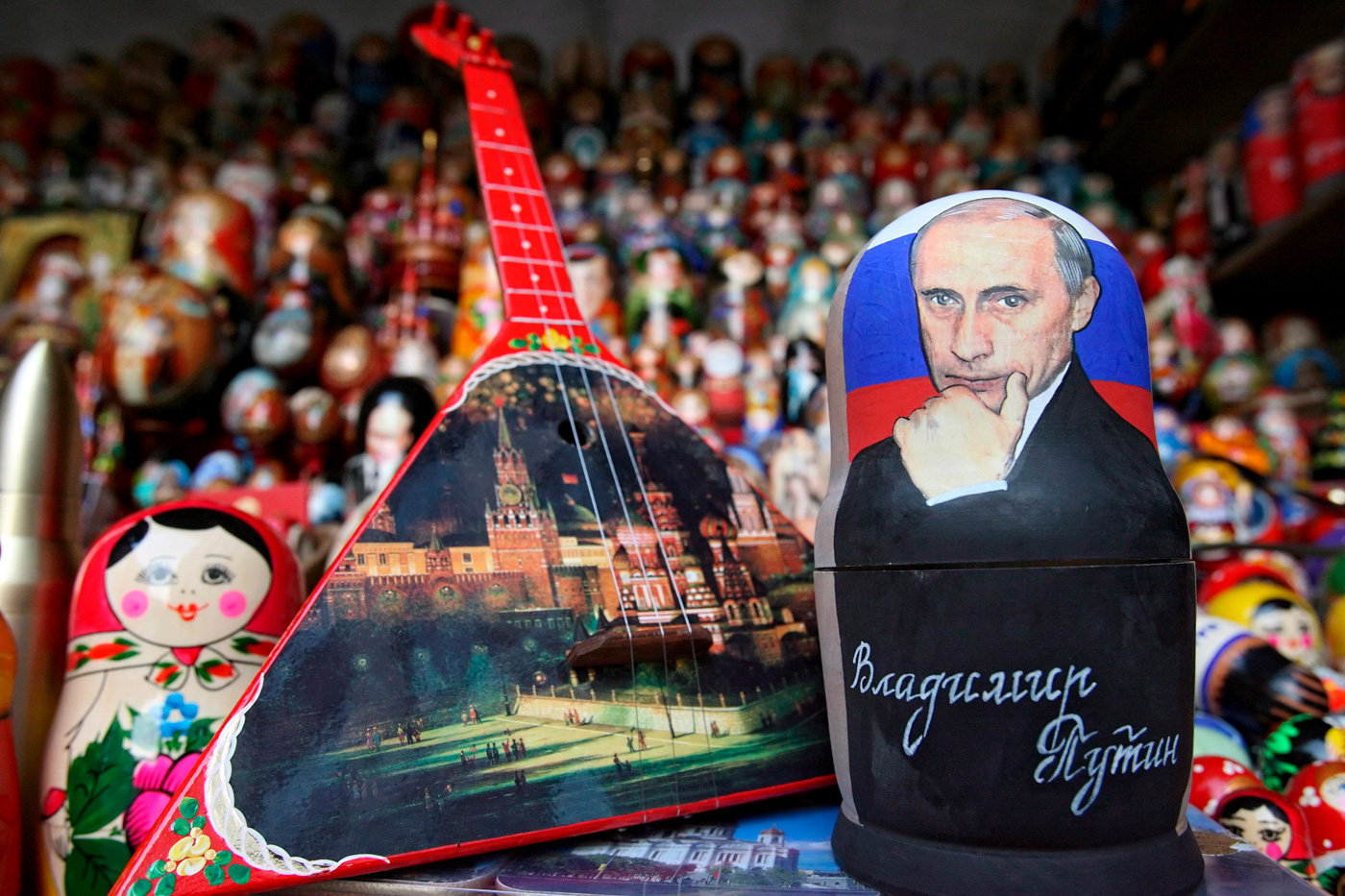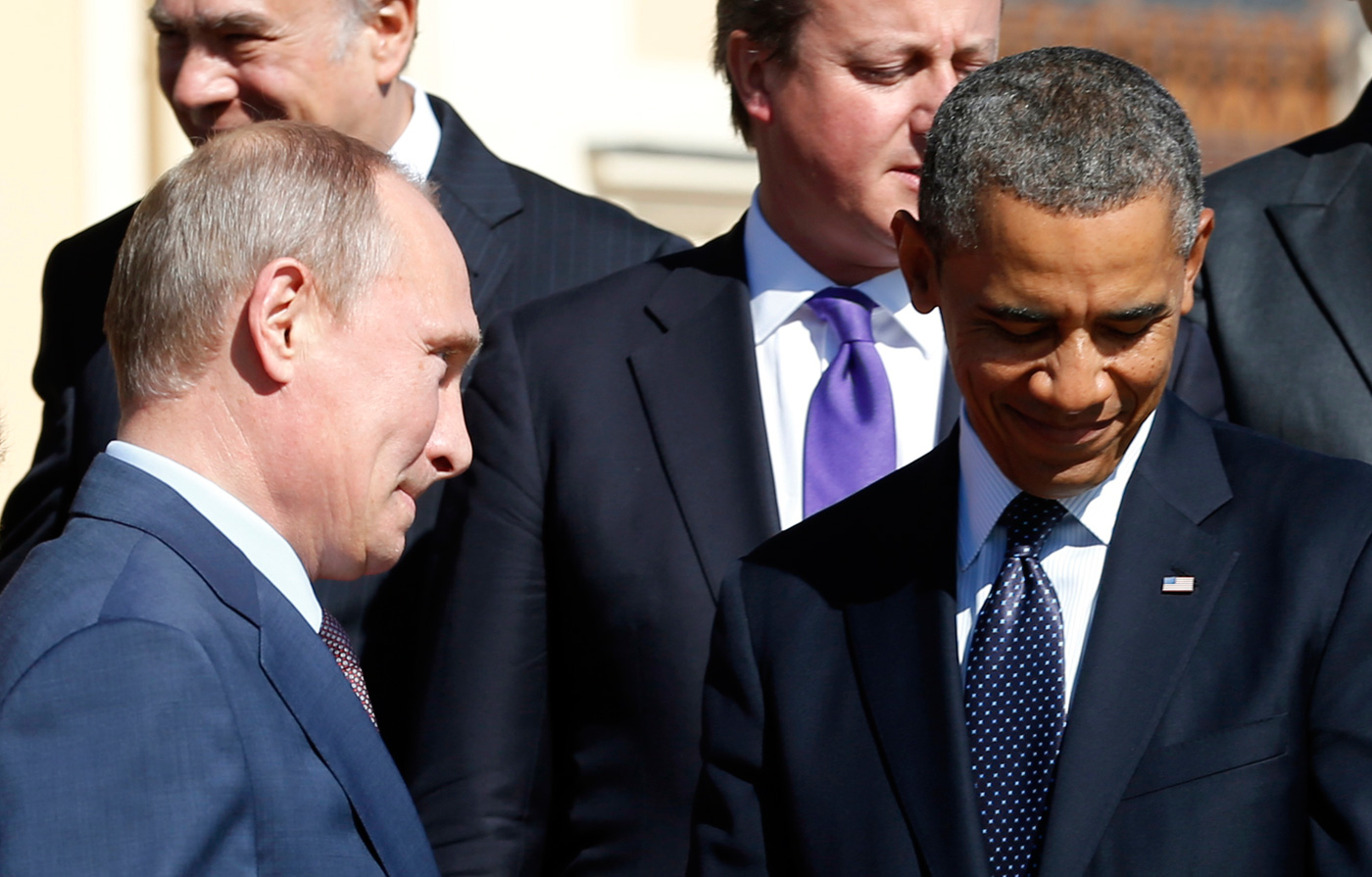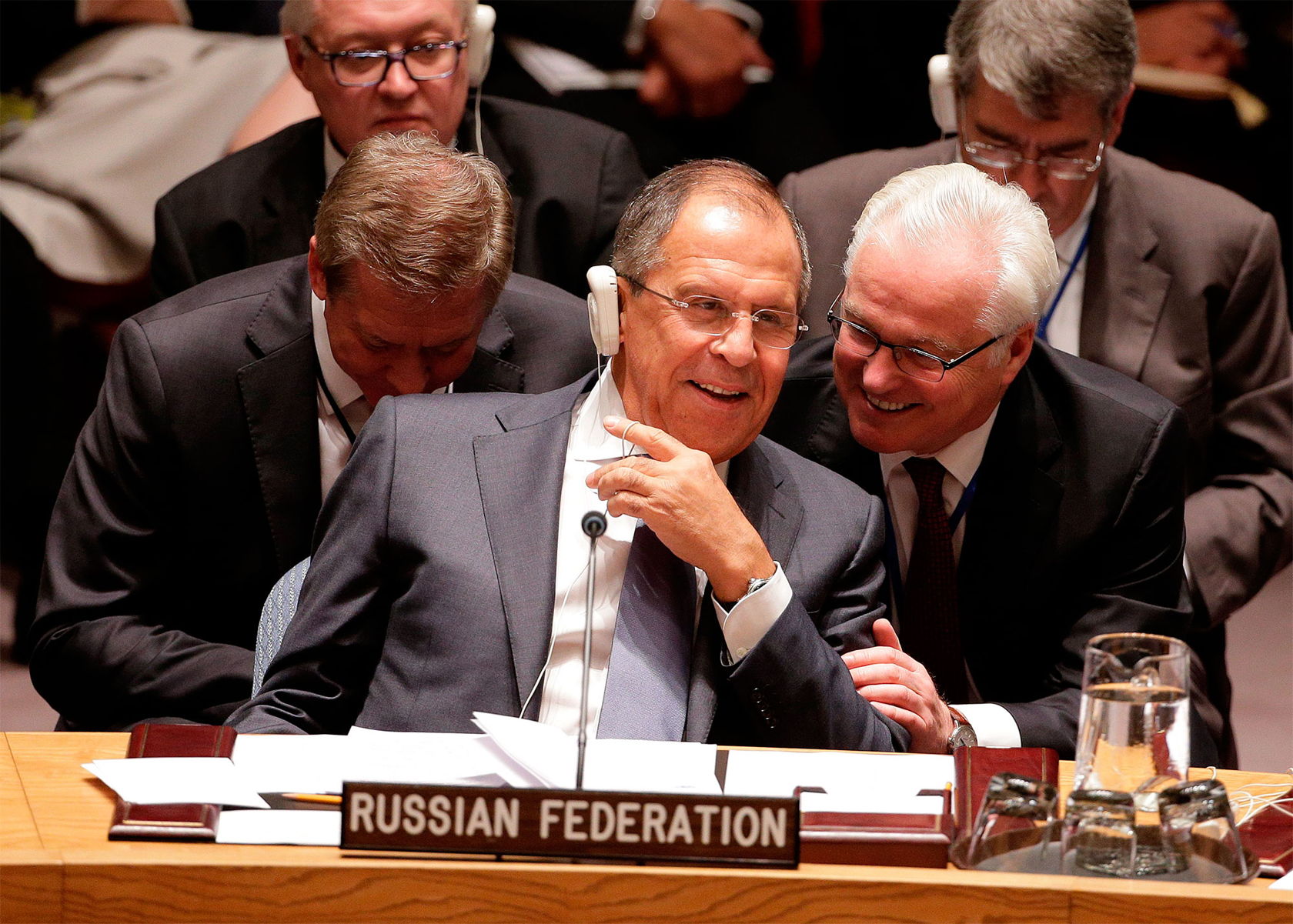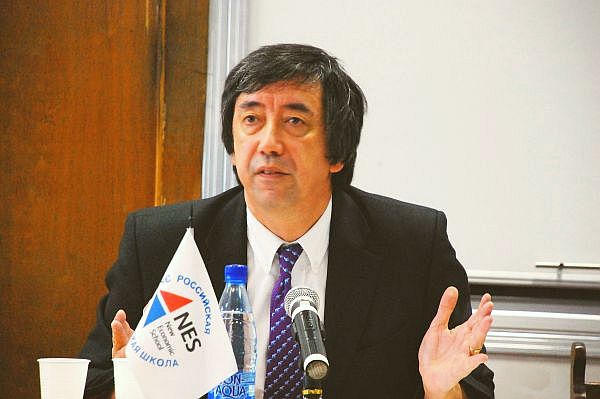Russian Foreign Policy through the Eyes of a Sophisticated Critic
(no votes) |
(0 votes) |
PhD in Political Science, Senior Lecturer, Department of Applied International Analysis, MGIMO University, RIAC expert
The new book by prominent scholar Bobo Lo is a trenchant, hard-hitting study of Moscow’s foreign policy, with numerous distortions and obvious bias. As such, the work is unlikely to promote an adequate and balanced perception of Russian strategy in the West. Even so, it offers the Russian reader a chance to assess, without illusions and undue optimism, the country’s place on the world stage, as well as its vulnerabilities and prospects for the future. Such a critical view is the best antidote to dangerous complacency and conformism and is needed considering the growing tensions along Russian borders.
Lo B. Russia and the New World Disorder. London, Washington D.C.: Chatham House, Brookings Institution, 2015.
The new book by prominent scholar Bobo Lo is a trenchant, hard-hitting study of Moscow’s foreign policy, with numerous distortions and obvious bias. As such, the work is unlikely to promote an adequate and balanced perception of Russian strategy in the West. Even so, it offers the Russian reader a chance to assess, without illusions and undue optimism, the country’s place on the world stage, as well as its vulnerabilities and prospects for the future. Such a critical view is the best antidote to dangerous complacency and conformism and is needed considering the growing tensions along Russian borders.
“Post-Soviet Sovietology” Gets a Second Wind
The crisis in the relations between Russia and the West has shaped demand in the United States and Europe for an expert look at Moscow’s foreign policy. The new interest is in stark contrast to the trend that has prevailed over the last two decades. There was a time was when Sovietology enjoyed the support of, and was influenced by, Western leaders at the highest level. After the end of the Cold War, however, Russianists often felt somewhat marginalized. The events in Ukraine have given a boost to their status, triggering a spate of publications that seek to solve the “riddle wrapped in a mystery inside an enigma.” The book by Bobo Lo, an associate fellow with Chatham House (UK), stands out from the majority of recent studies. His book Russia and the New World Disorder sometimes gives an impression of being addressed to the Russian, rather than the international, reader. Indeed, it contains a set of recommendations on how to make Russian foreign policy more successful. And the title clearly resonates with Vladimir Putin’s words about the “growing global chaos”, spoken at a meeting of the Valdai Club in 2014. The attentive reader, however, will note that this approach goes hand-in-hand with passages aimed at the Western audience. The book also contains descriptions of Russian internal politics that the native reader may find superfluous.
Perceptions and Reality
In a departure from the tradition of writing such books, the author follows a problem-centred approach. He cares little about chronological sequence of events, sacrificing it to the logic of his argument. This owes something to his experience working at expert institutions that focus on applied analysis as opposed to academic university studies.
The narrative proceeds from a description of Moscow’s view of the world system to the study of how it is manifested in the practice of global management and in key regions. The latter include the former Soviet countries, the Asia-Pacific Region and relations with the West. The final chapters discuss the probability of Russia changing course and possible scenarios of the evolution of the country’s policy until 2030.
The main leitmotif of the book is to debunk the “mythological consciousness” that determines Russia’s behaviour in the world and to juxtapose it to the stark reality of the “new world disorder.” The author declares that the world is living through a series of global transformations, and Russia is even less prepared than the West, the decline of which has been talked about extensively.
The main leitmotif of the book is to debunk the “mythological consciousness” that determines Russia’s behaviour in the world and to juxtapose it to the stark reality of the “new world disorder.”
Moscow’s policy is a kind of cynical and egoistic strategy that is probably characteristic of all great powers. Yet even against the background of other powers, its policy is marked by “hyper-cynicism” combined with strategic myopia. The result is a growing inadequacy of Russia’s foreign policy: the widening gap between reality and public image (which no one really believes), deepening international isolation and the assumption of excessive obligations.
Great Power Illusions are Bereft of Content
The author tries to trace this state of affairs to political culture, to Russian geography and history, to the features of the country’s economy and the actions of the social powers. He seeks to show how the disparate elements interweave in the process of making and legitimizing decisions, producing a complex system of constraints that explain the actions of the national elite. However, Bobo Lo sees the main explanation of Russia’s behaviour in the world in the country’s internal politics and the concentration of power in the hands of a single individual who stands at the head of the state – in his personal perceptions and idiosyncrasies.

Igor Istomin: Unraveling the Enigma:
Western Expert Community Seeks
to Explain Russian Policy
He believes that the key delusion is the commitment to securing the country’s “great power” status at all costs. In the international arena, the Russian leadership perceives itself as an influential player involved in maintaining international order and is confident that Russia is historically entitled to such a role.
Any attempts to question or ignore this dogma are fiercely resented. The book presents Russian foreign policy as an interminable and meaningless pursuit of prestige at the expense of constructive work to strengthen global and regional order and ensure national prosperity.
The author claims that Russia seeks to preserve and expand its presence in the main world regulating institutions (the United Nations, the G20, the G8 and BRICS) without putting a substantive agenda on the table or making a real contribution to the achievement of the collective goals of the international community. Moreover, Russia is marginalized on such issues as the reform of the international financial architecture, the development of the world trade system and the fight against climate change.
Bobo Lo sees the main explanation of Russia’s behaviour in the world in the country’s internal politics and the concentration of power in the hands of a single individual.
The Destructive Effect of Imperial Ambitions
Nowhere are Russia’s claims to a special status more pronounced than in the former Soviet countries. Although Bobo Lo brushes aside simplistic accusations of Moscow of pursuing a “policy of re-Sovietization”, he stresses that its regional strategy is basically imperial. The Russian approach to neighbouring states follows the “limited sovereignty” principle once formulated by Brezhnev with regard to Eastern Europe.
“Limited sovereignty” involved the formal independence of the East European states, thus relieving Moscow of the responsibility and the costs of a traditional empire. At the same time, Moscow claimed the right of veto on the fundamental foreign policy issues of its neighbouring states. Strengthening that system is the aim of developing bilateral links between Russia and the former Soviet states and Russian integration initiatives that have no potential for becoming truly useful instruments for tackling common problems.
The author notes that such a policy is sharply resented by all the former Soviet countries, including Moscow’s closest and most consistent partners. But this does not prevent them from successfully exploiting Russia’s obsession with its status and its fear of Western influence in the region. Finally, Russia’s morbid concern about its “natural privileges” provokes involvement from the United States and the European Union in the affairs of the former Soviet countries, which they would sometimes prefer to forget.
Russia and the “Wrong Kind of Multi-Polarity”

Elena Alekseenkova:
Chaos and Play without Rules:
On the Current Crisis of Confidence
in Trust in Relations between Russia
and the West
Another key illusion under which Moscow is labouring, according to Bobo Lo, is its vision of a multi-polar (polycentric) world. Proclaimed in the 1990s, today it is becoming an ever more tangible and important reality. At the same time, the Russian leadership has its own somewhat limited concept of multi-polarity, a world run by a concert of great powers that includes Russia. The ongoing diffusion of power is creating a very different kind of order, or rather, is spreading disorder. While the Russian authorities are persuading themselves that the international influence of the United States is declining, what is actually happening is a collective weakening of all the great powers, with small countries executing increasingly effective “counter-leadership” strategies and the number of non-state players growing. Russia is ill-prepared for this state of affairs and has limited resources for counteracting various challenges presented by the increasingly anarchic international environment.
Bobo Lo believes that Moscow’s behaviour during the course of the Ukrainian crisis makes it still more vulnerable. The deterioration of relations with the West deprives it of access to capital, technology and the competencies it needs for comprehensive modernization and dramatically restricts its room for political manoeuvre. All these processes are taking place against the background of strengthening Euro-Atlantic unity and the growing consolidating role of EU institutions. All this makes it impossible for Moscow to capitalize on the differences among European Union members like it did before.
Russian foreign policy as an interminable and meaningless pursuit of prestige at the expense of constructive work to strengthen global and regional order.
The Fallacy of the Declared Alternative
The worsening of relations with the West stimulates the search for alternatives. Logically, the stake is put on the group of countries with the most dynamic economies. At the same time, Moscow’s much-touted “pivot towards Asia” obscures its marginal position in the region. Considering its under-developed Far East, with the exception of its natural resources, Russia has little to offer its potential partners either in economic or in security terms. The instrumental approach to relations with the countries in the region as a counterweight to the West during a period of increased tensions is not conducive to greater trust in Russia.
While the Russian authorities are persuading themselves that the international influence of the United States is declining, what is actually happening is a collective weakening of all the great powers, with small countries executing increasingly effective “counter-leadership” strategies and the number of non-state players growing.
The primacy of relations with China constrains Russia’s freedom of action in Asia. Whenever relations between China and its neighbours become strained, Moscow sticks to the strategy of keeping out of others’ quarrels. Meanwhile, the author has little trust in the productiveness of Russo–Chinese relations, noting the limited common agenda, growing competition and difficulty of implementing energy projects. At the end of the day, Beijing’s interaction with Moscow is overshadowed by the more important relations with Washington, with which it seeks to maintain a mutually acceptable modus vivendi. Moscow is increasingly perceived as an adjunct of Beijing.
Gaps and Exaggerations in Radical Critique

The United Nations’ legitimacy is unique
The above view of Russian policy is obviously one-sided. The narrative is geared entirely towards proving the main thesis of the book: Russian policy is based on dangerous illusions and the preservation of its positions in the world ultimately hinges on restoring a constructive relationship with the West. Most of Moscow’s foreign policy successes are dismissed as temporary and ephemeral, while the shortcomings and setbacks are highlighted. The scenarios proposed in the final part are intended to show that the world’s attitude towards Russia can only turn around if the country transforms itself according to liberal democratic templates.
While criticizing Moscow for its alleged “zero-sum” approach, the author often sins on the same side. Thus, in examining interaction within BRICS, he claims that Russia has conceived of that group only as a counterweight to American dominance while ignoring the constructive role that BRICS plays in coordinating the positions of “rising” countries. In analysing Russia’s relations with its Asian partners, Bobo Lo is concerned only with how they can balance Moscow’s links with China. As a result, he brushes them off as inessential, ignoring the fact that they are valuable in their own right. Similar inconsistencies can be found in other places. Accusing Russia of lacking practical substance in its policy, the author criticizes its relations with India because it is focused on mutually beneficial economic projects. In demanding that Moscow play a constructive role in international institutions, he does not explain what this should be. The book ignores Russian initiatives aimed at arms control, strengthening information security, preventing the militarization of outer space and combating the narcotics threat. It hardly touches upon the country’s role in conflict resolution, sidesteps the issue of Russia’s stabilizing influence in Central Asia, and fails to mention the country’s modest but growing involvement in promoting international development. Not surprisingly, the author finds no evidence of any substantial Russian contribution to regulating the world.
The Shortcomings of Analytical Optics
The narrative is geared entirely towards proving the main thesis of the book: Russian policy is based on dangerous illusions and the preservation of its positions in the world ultimately hinges on restoring a constructive relationship with the West.
The manner in which the author handles empirical data also raises questions. The book draws on a solid body of sources and contains numerous references to documents and literature. All the more surprising is the fact that, at crucial moments, the author often neglects to validate his point. One salient example is his claim that Russian towards the United Nations is almost entirely confined to its participation in the Security Council, which is most consistent with its views on the concert of great powers. The author ignores the draft conventions and General Assembly resolutions tabled by Moscow and its work in numerous auxiliary bodies.
Finally, the description of the global situation as “a new global disorder” over-dramatizes the situation. Elements of instability are numerous and diverse, but they do not add up to a global conflict or a general crisis of managing the world. The world’s leading powers probably do not play the same role that they played in the European concert in the 19th century, but they still have powerful levers for influencing international relations. And they have no qualms using them. The picture Bobo Lo paints ends up being no less mythologized than the vision of the world he seeks to debunk.
Separating the Wheat from the Chaff
Bobo Lo’s book is a trenchant critical expose of Russian foreign policy. It reflects the prevalent Western view of the gradual and inevitable decline of Russian influence and the long-term trend of Moscow growing weaker. The picture is exaggerated, often to the point of satire. This is not to say that it is totally erroneous and the criticisms are ungrounded.
The picture Bobo Lo paints ends up being no less mythologized than the vision of the world he seeks to debunk.
Russia’s behaviour in the world is indeed sometimes inconsistent, short on substance and lacking a strategic vision. Moscow has serious problems in relations with its partners in former Soviet countries and in strengthening its positions in the Asia-Pacific Region, while its foreign policy thinking is still largely focused on the West.
Bobo Lo’s book by may scare off the Russian reader due to its trenchant character (or win plaudits from part of the liberal audience). But more importantly, it merits a close and critical reading and a comparison with the sometimes overly sanguine assessments and inflated expectations. For all its drawbacks and an undisguised critical thrust it does contain original judgements and useful analytical ideas.
(no votes) |
(0 votes) |





